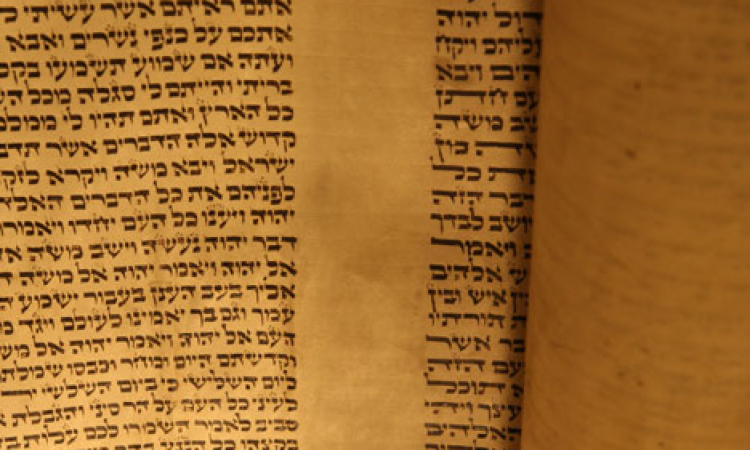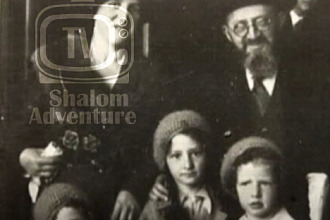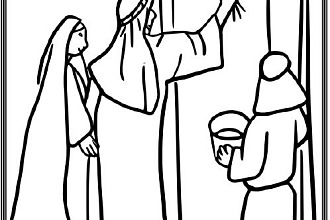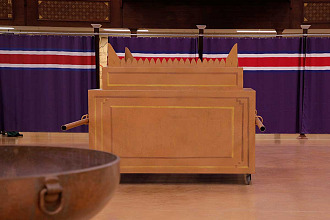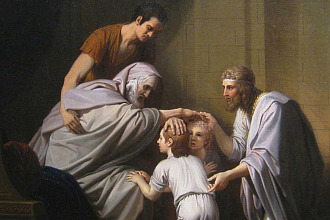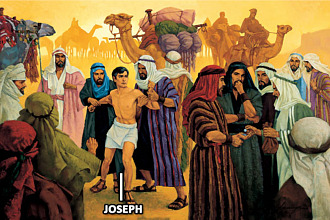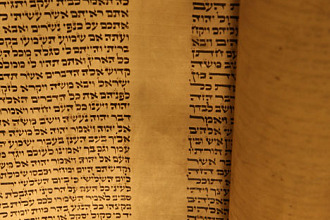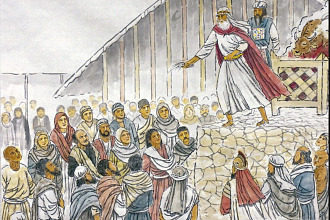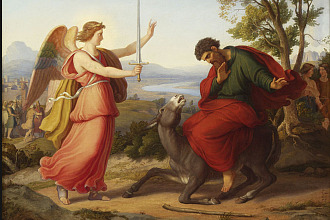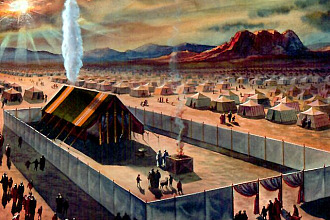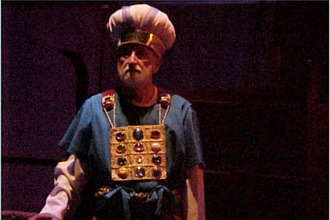Parasha for the Week: Ki Tavo Deuteronomy 26:1 – 29:8
Haftara for the Week: Isaiah 60:1 - 22
Besorat Yeshua: Mark 8:1 - 13
Overview
When Bnei Yisrael dwell in the Land of Israel, its first fruits are to be taken to the Temple and given to the kohen in a ceremony expressing recognition that it is G-d who guides the history of the Jewish People throughout all ages.
With this mitzvah Moshe concludes the commandments that G-d has told him to give to the Jewish People. Moshe exhorts them to walk in G-d’s ways, because they are set aside as a treasured people to G-d.
When Bnei Yisrael cross the Jordan River they are to make a new commitment to the Torah.
Huge stones are to be erected and the Torah is to be written on them.
Half the tribes will stand on Mount Gerizim, and half on Mount Eval, and the levi’im will stand in a valley between the two mountains. There the levi’im will recite 12 commandments and all the people will answer “amen” to the blessings and the curses.
Moshe then details the blessings that will be bestowed upon Bnei Yisrael. These blessings are both physical and spiritual. However if the Jewish People do not keep the Torah, Moshe details a chilling picture of destruction, resulting in exile and wandering among the nations.
"Returning tithe brings rejoicing"
This week’s Parsha Ki Tavo begins with the mitzvah of “Bikurim”— bringing the first fruits to the Kohen (priest) in the Holy Temple. This mitzvah is an expression of appreciation by the owner of the land for the good and blessings which G-d gave him. The Torah says, “And you shall rejoice in all the good which the L-rd your G-d has given to you...”
"Appreciate What You Have"
The Torah states: “And you shall rejoice with all the good that the Almighty has given you” (Deut. 26:11). Why do we need a directive to rejoice when we should automatically be happy when we have good things? Rabbi Mordechai Gifter, clarifies with an insight into human nature: “Man’s nature is to constantly want more than he presently has. ‘He who has one hundred wants two hundred.’ Our moments of joy are mixed with sadness over what we lack—and this is destructive both physically and spiritually. Therefore, the Torah commands us to feel a joy that is complete—to focus on and rejoice with what we have.” The mitzvah of Bikurim also teaches us to be happy and rejoice with whatever G-d has given us. A person who believes that whatever he or she has is a gift from G-d, will not be jealous of others and thus truly rejoice and be satisfied and happy in life. If you think that you will be happy only when you have more, then you will never be happy. When you finally get what you were hoping for, you will once again focus on getting more and will again feel unhappy. Happiness is dependent upon your state of mind. You can only be happy if you appreciate what you have and what you are presently doing. Adding to Rabbi Pliskin’s message, Pirkei Avos (chapter 4, the first mishna or “teaching”) states, “Who is the rich person? He who is happy with his portion.” Regardless of what you have, you are only wealthy if you have mastered the ability to appreciate what you have. According to Torah, true wealth is measured in terms of happiness!
The mitzvah of Bikurim teaches us that before we enjoy the bounty and blessings which G-d gives us, we must give back.
"Hillel taught"
“Do not say, ‘when I have time I will learn,’ for perhaps you will never have time.” There are those who feel that communal responsibilities infringe too greatly on their time and potential for personal development. They therefore conclude that disassociating themselves from communal involvement will give them more time to learn. Never reckon that time can be generated by avoiding a mitzvah. That time might never materialize. God will not permit one to benefit by neglecting his communal responsibilities.
HAFTARA Isaiah 60:1 - 22
This Shabbat is the fifth Shabbat after Tisha B’Av. We are in a period called Shiva D’nechemta— ”Seven weeks of comfort.” The seven Haftarot of the weeks between Tish’a B’av and Rosh Hashana are prophesies of comfort and hope for Israel and God’s people at large.
Haftara: This text of comfort reminds us the mission of Israel. “Arise, shine; for your light has come, and the glory of the L-RD has risen upon you.” (Is. 60:1). G-d’s people has to shine and to reflect the glory of the L-rd, which is His character. Her testimony will bring nations and kings to her and through her to G-d. “Nations shall come to your light, and kings to the brightness of your dawn” (Is. 60:3). However, to see people coming to her she must lift up her eyes and accepts evidences given by the L-rd “Lift up your eyes and look around; they all gather together, they come to you;” (Is 60:4). She will shine even more to be “radiant” “Then you shall see and be radiant; your heart shall thrill and rejoice, because the abundance of the sea shall be brought to you, the wealth of the nations shall come to you.” (Is 60:5) Even the Arabic world will come to Israel: “A multitude of camels shall cover you, the young camels of Midian and Ephah; all those from Sheba shall come.” (Is 60:6a) It will bring wealth to her “They shall bring gold and frankincense, and shall proclaim the praise of the LORD.” (Is 60:6b). To comfort Israel, G-d promises to her that she will see her children who are in exile come back home, “For the coastlands shall wait for me, the ships of Tarshish first, to bring your children from far away, their silver and gold with them” (Is 60:9a). That will come from the L-rd “for the name of the LORD your God, and for the Holy One of Israel, because he has glorified you.” (Is 60:9b). Israel will live in peace without fearing the nations and invaders “Your gates shall always be open; day and night they shall not be shut, so that nations shall bring you their wealth, with their kings led in procession.” (Is 60:11). Blessings will be always there for her “Your sun shall no more go down, or your moon withdraw itself; for the LORD will be your everlasting light, and your days of mourning shall be ended. Your people shall all be righteous; they shall possess the land forever. . . . the smallest one a mighty nation; I am the LORD; in its time I will accomplish it quickly. (Is. 60:20-22). This will all be fulfilled in the New Heaven’s and the New Earth. (Is 65, 66)
Besorat Yeshua Mark 8:1 - 13
One of the themes of the parasha is the joy of bringing to the L-rd the first fruits of the harvest “And you shall rejoice in all the good which the L-rd your G-d has given you and to your household.” (Deuteronomy 26:11)
Besorah: In the text of the besorah, Yeshua wants to give joy to people who have no joy. In those days when there was again a great crowd without anything to eat, he called his disciples and said to them, “I have compassion for the crowd, because they have been with me now for three days and have nothing to eat.” (Mark 8:1-2). Yeshua is the one who has compassion for the crowd who is thirsty and hungry.
Yeshua asks his disciples to give food to the crowd, but they don’t know how to do it. “How can one feed these people with bread here in the desert? ” (Mark 8:4). Yeshua knows exactly how to do it. He asked them, “How many loaves do you have?” They said, “Seven.” “ (5). It is important for the disciples to discover their own incapacities to feed the crowd, that’s why Yeshua asks them to be aware of what they have of their asset, “7 loaves”. For Yeshua it is enough, he gives them an order. “Then he ordered the crowd to sit down on the ground” (6). Obedience is important, if the crowd or the disciples did not accept full obedience, the miracle could not be done. “he took the seven loaves, and after giving thanks he broke them and gave them to his disciples to distribute; and they distributed them to the crowd” (7). The crowd was a big crowd, “They ate and were filled; and they took up the broken pieces left over, seven baskets full. Now there were about four thousand people. And he sent them away” (8-9). For the pharisees it was not enough, Yeshua fed 4,000 people with 7 loaves and a few fishes, but they want more signs “The Pharisees came and began to argue with him, asking him for a sign from heaven, to test him” (11). Yeshua did not satisfy their curiosity, they had more than enough signs. “And he left them, and getting into the boat again, he went across to the other side” (13).

